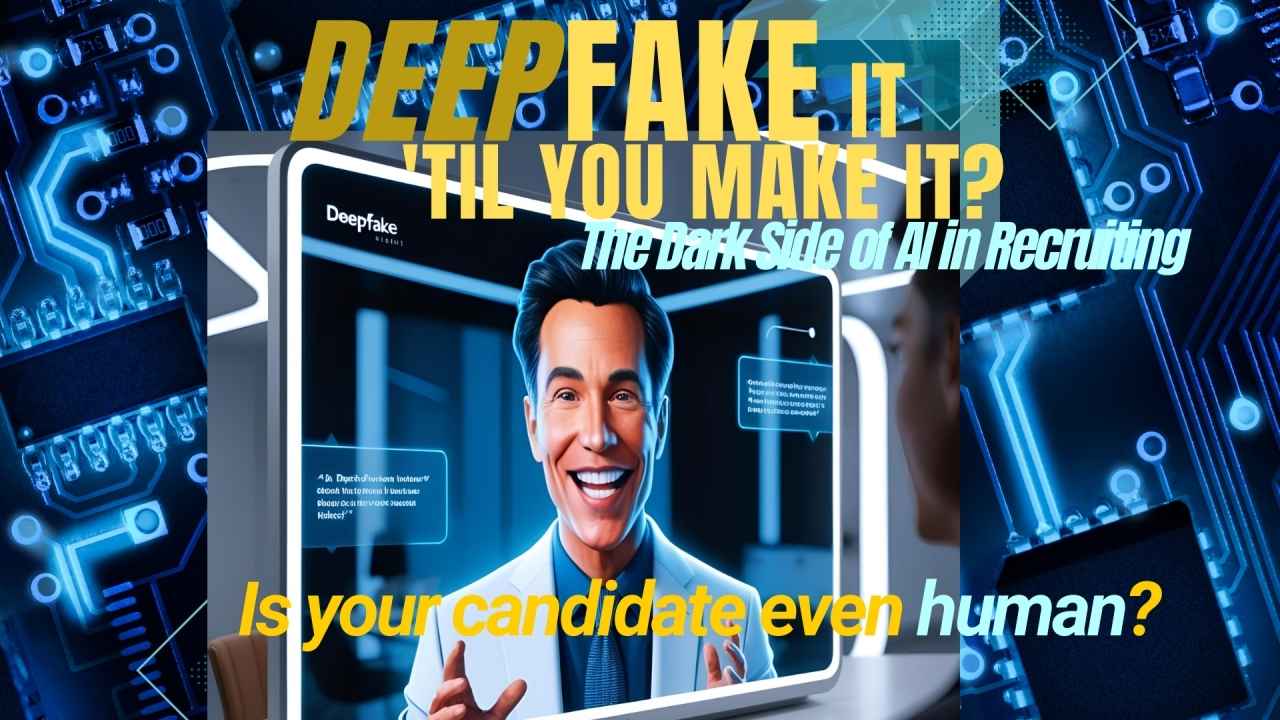Fake Interviews. Voice Clones. Deepfakes. Welcome to Recruiting in 2025

The Rise of AI Recruitment Scams: Why Smart Tools Are Making Us Work Harder
AI was supposed to make recruiting easier—automate busywork, match great candidates faster, and save time. Instead? It’s helping scammers game the system like never before. From deepfake interviews to AI-generated resumes and voice clones, fraudsters are using the same tools we were excited about… and it’s costing companies millions.
Real Talk: This Is Happening Now
- North Korean hackers used fake resumes to land remote tech jobs—then funneled salaries into missile programs (AP News, 2024).
- Some paid Americans to attend Zoom interviews for them.
- Deepfake video interviews and voice mimicking are fooling hiring teams globally.
- OpenAI tools are now being used to forge fake transcripts and employment docs.
- Australia? Already hit. IT departments infiltrated by fake AI avatars (The Australian, 2025).
The Irony?
The more we lean on AI to help us screen candidates, the more human we actually need to be. Recruiters are spending more time manually verifying resumes, double-checking interviews, and learning how to spot fakes. It’s no longer enough to be a good recruiter.
You have to be part:
- Technologist
- Detective
- Human behavior analyst
So What’s the Fix for AI Recruitment Scams?
New tools like biometric verification (HireVue, Veriff), ear micro-movement analysis, and AI deepfake detection platforms are starting to help. But the real last line of defense? Us. Experienced recruiters. People with instincts, insight, and context AI still can’t fake.